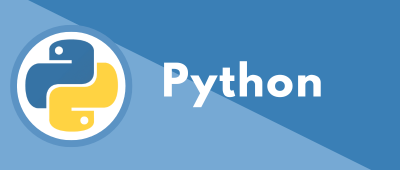python
Python is enormously simple and easy to learn, Enrolling in Nandini Software Solutions will be one of the good career choices for Python Developer aspirants to recognize more about programming concepts in python. with highly qualified trainers, perfect syllabus, reliable study materials and advanced computer lab. We are providing python courses training to the needs from Beginners level to Experts level with real-time projects and working models. With the highest possible placement ratio and the reputation for our training,

Why Python ?
Easy-to-use and simplicity makes it one of the most widely used languages for general purpose programming.
Has two important features namely code readability and the simplest syntax.
Code readability means using of white space in place of braces and the syntax needs fewer lines of code than all other programming languages.
Free-of-cost and can be used on multiple platforms such as Windows, macOS and Linux.
Used in various domains such as web applications, internet scripting, database and gaming.
Key Features
• Delivered by 10+ years of Python Certified Expert
• 5 Live Projects For Hands-On Learning
• 40+ Hrs Hands On Training
• 24/7 Lifetime Course Material Access
Python Training Course Content
By Choosing this Python Training and Certification Course at Nandini Software Solutions, you’ll get Knowledgeable and Skillful with industry designed course syllabus. Whether Online/ Classroom Training, you get advanced guidance to become an expert.
Session 1: Introduction
- Python Overview
- History Of Python
- Cpython, Jython, PyPy
- Python Features
- Areas Of Application Of Python
- Understanding More About Python
- Writing your First Python Program
- Interactive Mode Programming
- Script Mode Programming
- Why do we need Python?
- Program Structure
Session 2: Installation and Execution
- Python 2.7 vs Python 3
- Local Environment Setup
- Installing Python on different Platforms(Windows and Linux)
- Python Interpreter and Python Interactive Shell
- Python IDE(Pydev, Pycharm, VIM)
- Execution Steps
- Interactive Shell
- Executable or script files
- User Interface or IDE
Session 3: Memory management and Garbage collections
- Object creation and deletion
- Object properties
Data Types and Operations
- Numbers
- Strings
- List
- Tuple
- Dictionary
- Other Core Types
Session 4: Statements and Syntax
- Assignments, Expressions and prints
- If tests and Syntax Rules
- While and For Loops
- Iterations and Comprehensions
Session 5: File Operations
- Opening a file
- Using Files
- Other File tools
Session 6: Functions
- Function definition and call
- Function Scope
- Arguments
- Function Objects
- Anonymous Functions
- Variable Scope and Returning Values
- Lambda Functions
- Object- Oriented Concepts
Session 7: Modules and Packages
- Module Creations and Usage
- Module Search Path
- Module Vs. Script
- Package Creation and Importing
Session 8: Classes
- Classes and instances
- Classes method calls
- Inheritance and Compositions
- Static and Class Methods
- Bound and Unbound Methods
- Operator Overloading
- Polymorphism
Session 9: Exception Handling
- Standard Libraries
- Modules Used in Python (OS ,Sys, Date and Time etc.)
- The Import statements
- Module search path
- Package installation ways
- Errors and Exception Handling
- Handling Multiple Exceptions
Session 10: Advanced Concepts
- Intro to NumPy and Pandas
- NumPy- Arrays
- Operations on arrays
- Indexing slicing and iterating
- Reading and writing arrays on files
- Pandas – Data structure & index operations
- Reading and Writing data from Excel/CSV formats into Pandas
Session 11: Data Visualization
- Matplotlib Library
- Grids, axes, plots
- Markers, colors, fonts and styling
- Types of plots – bar graphs, pie charts, histograms
- Contour plots
Session 12: Data Visualization
- Basic Functionalities of a data object
- Merging of Data objects
- Concatenation of data objects
- Types of Joins on data objects
- Exploring a Dataset
- Analyzing a dataset
Session 13: GUI Programming
- Ipywidgets Package
- Numeric Widgets
- Boolean Widgets
- Selection Widgets
- String Widgets
- Date Picker
- Color Picker
- Container Widgets
- Creating a GUI Application
Session 14: Network Programming & Multi threading
- Understand the concepts of Database
- Access MySQL DB
- Create socket for sending short messages
- Learn Multi threading Concepts
- MySQL DB access
- Network programming
- Multi Threading
